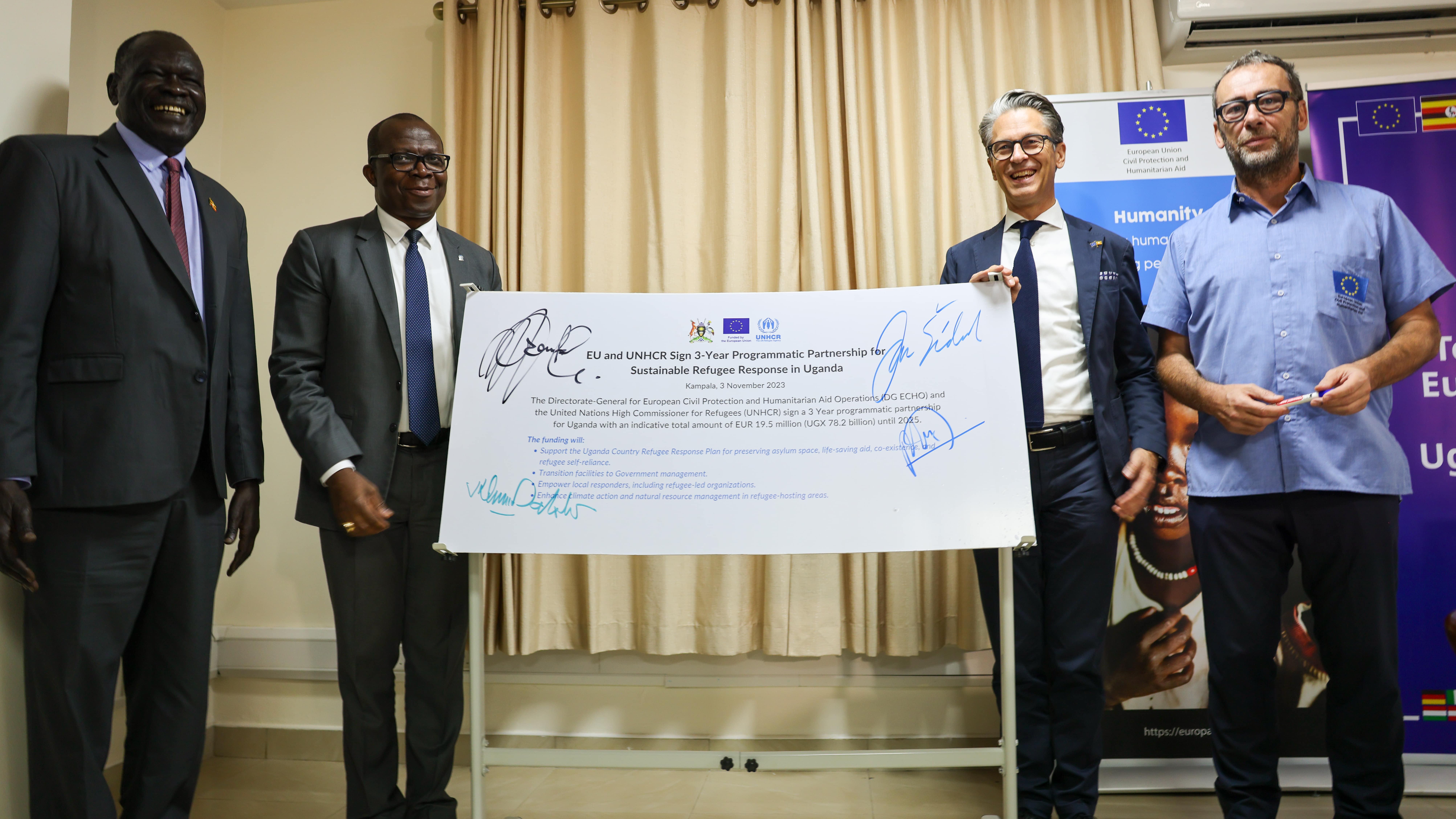"I work with pride in ICT, to serve our people of concern better"

"I work with pride in ICT, to serve our people of concern better"
Name: Joan Opio
Job title: Senior IT Assistant, UNHCR Sub Office Arua, Uganda
Years at UNHCR: 2 years and 8 months
Why did you become an aid worker?
As a child at school I studied with many Persons of Concern from South Sudan and the Democratic Republic of the Congo, who had fled their countries of origin because of war. I made many friends amongst them because they were very good at Science subjects, where we had a common sense of belonging together. When they told me their stories of how they had managed to flee from wars in their countries; spending days without food in the bush, trying to escape, leaving all their belongings behind, and that they now felt they had found peace and safety in Uganda - this really touched me. It triggered a deep feeling of sadness within me, and I felt an overwhelming sense of compassion towards them.
When I joined UNHCR, I was reminded of my school friends, and the stories they had shared with me, of fleeing their homes without food, water, or shelter. I work with pride in ICT because I know the services I offer on a daily basis help to improve efficiency and effectiveness in refugee camps and in the field, because connectivity and ICT support is required at all times. I am proud to serve as a humanitarian aid worker.
What is the most rewarding / challenging thing about your job?
The most rewarding moments about my job are when the people you serve feel happy and accommodated because of your support, and they feel that their problems have been solved. Each day that I get a system error is always a great learning moment for me because figuring out the solution helps me to develop my knowledge and understanding.
The most challenging moments are when the system is down for long hours, as this stalls the work - these are usually not my best moments. Technical failures can occur in any situation, but they are still challenging because you must immediately think of backup solutions, especially when dealing with a major technical hitch.
What was your best day at work?
The list of my best days at work will really be long; I should sum it up by saying that my best days are when I have made contributions to the operation by fixing technical issues through providing end user support, providing immediate ICT solutions to users so they feel well-supported, and making sure any challenges encountered in the ICT infrastructure are fixed immediately.
One of the moments I remember as amongst my best at work was when there was an urgent need to secure funds for an essential ICT requirement; I spoke with Management and explained the technical cause and benefits of why this service was urgently required – they were open and receptive and approval was granted. We immediately acquired the services, and this has greatly improved daily systems and network performance. We need stable internet services to serve our Persons of Concern better.

What was your most challenging day?
My most challenging day, which also turned out to be the most memorable day in my career path, was when we were requested to set up a remote site with internet connectivity for verification of Persons of Concern. It was an emergency deployment, and the site had a very poor network connection. We worked quickly to install a satellite communications system, but we had to change locations on the compound multiple times in order to get the satellite signals. It was quite a challenging experience - usually for an installation of this type it would take me about 45 minutes to 1 hour, but this particular site took 4 days. It can become challenging when you are required to provide services as quickly as possible, but in the end we met the expected deadline and we were successful.
As a woman, what is it like to work in an environment traditionally seen as male-dominated?
Adjusting to the ICT work environment comes with some challenges, especially managing the work-life balance - in the field of ICT, you are among the first to arrive and the last to leave work. I treat it as a challenge - I feel like a superstar and I’m proud of what I do.
There have been so many opportunities. I have gained so much respect from the world around me, and I have had parents ask me to provide mentorship to their daughters. My organization and the ICT heads that have supervised me in UNHCR saw my potential and have given me the opportunity to excel, and I’m proud to say they have made me shine in this career. I can see the mind-sets of people beginning to change when they encounter me on the job.
With 7 years’ experience working in a male-dominated industry, I stand as a living reference - I have made it, and you can too. It all starts with listening to your career desires, the goals you have set - be ambitious about what you want to achieve out of a career, be a go-getter and listen to your inner self, your motivations. I am here now motivating other young women so that we can shine equally with the men in ICT.
The UN Refugee Agency works in 130 countries helping men, women and children driven from their homes by wars and persecution. Our headquarters are in Geneva, but 87 per cent of our staff are based in the field, helping refugees. This profile is one of a series highlighting our staff and their work.









